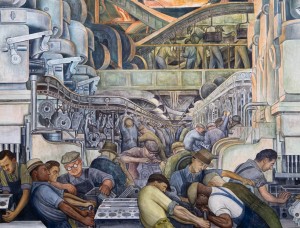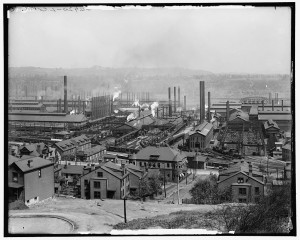This talk will offer an overview of the relationship between the growth of low-wage immigration to the United States since the 1970s and the restructuring of the nation’s labor market in the same period. The central claim is that migration patterns have been shaped by, and at the same time helped to shape, broader political-economic trends. More specifically, the large influx of low-wage immigration to the U.S. in the late twentieth century is linked to the dismantling of the highly regulated (and highly unionized) form of capitalism that characterized the United States during the New Deal era. As U.S. employers increasingly turned to new business strategies in the 1970s, seeking to externalize market risk through various forms of subcontracting, and to undermine the power of organized labor, low-wage precarious work expanded dramatically. Many U.S. born workers shunned the newly degraded jobs that proliferated at the bottom of the labor market, and employers turned instead to immigrant workers, both authorized and unauthorized, with the assumption that they would be more docile than the U.S.-born. To the surprise of most observers, however, many immigrant workers — including the unauthorized — became actively engaged in organizing efforts aiming to improve their pay and conditions.

Ruth Milkman
Professor of Sociology, Graduate Center
Ruth Milkman is a sociologist of labor and labor movements who has written on a variety of topics involving work and organized labor in the United States, past and present. She has written extensively about low-wage immigrant workers in the U.S., analyzing their employment conditions as well as the dynamics of immigrant labor organizing. She helped lead a multi-city team that produced a widely publicized 2009 study documenting the prevalence of wage theft and violations of other workplace laws in Los Angeles, Chicago and New York. She also recently co-authored a study of California’s paid family leave program, focusing on its impact on employers and workers. After 21 years as a sociology professor at UCLA, where she directed the Institute for Research on Labor and Employment from 2001 to 2008, she returned to New York City in 2010. She is currently a Professor of Sociology at the CUNY Graduate Center and at the Joseph F. Murphy Institute for Worker Education and Labor Studies, where she also serves as Academic Director.











